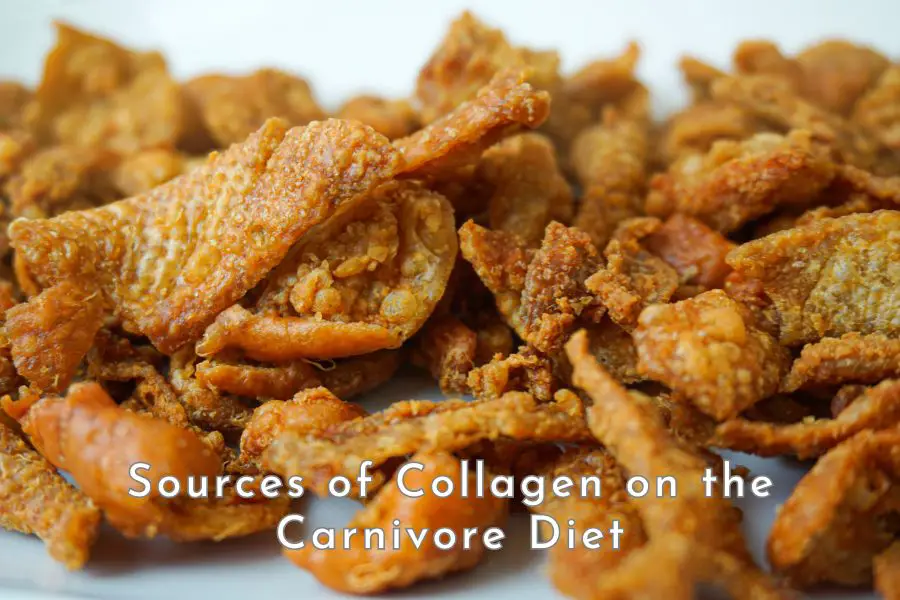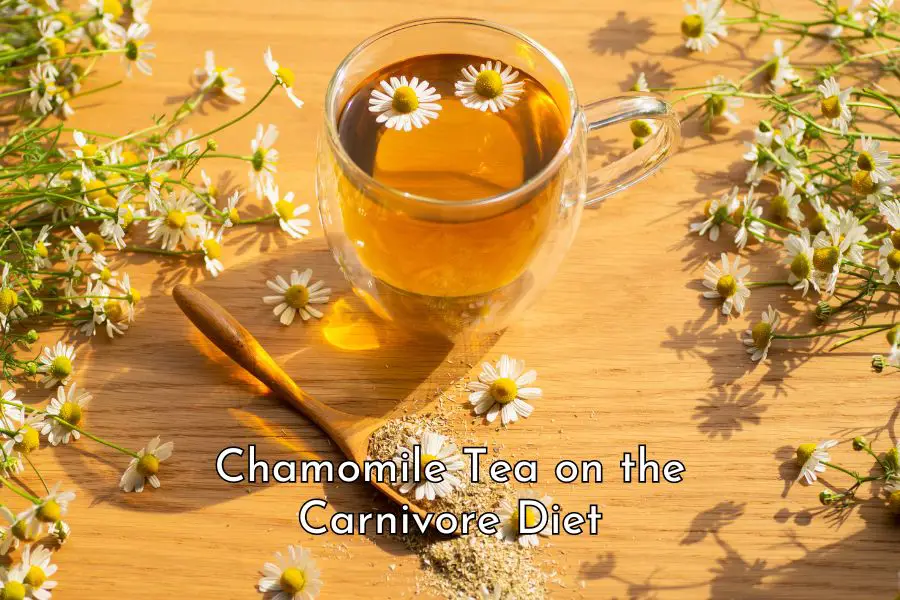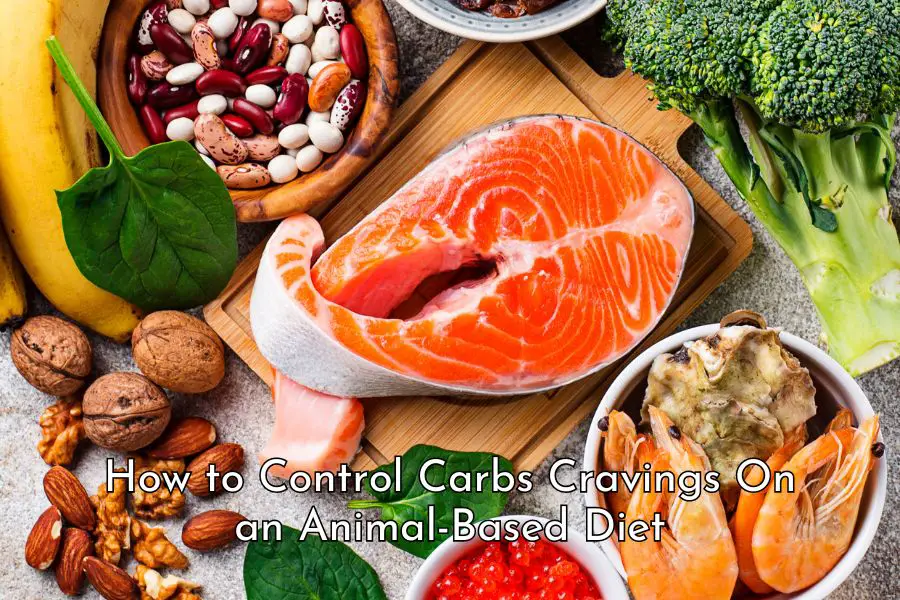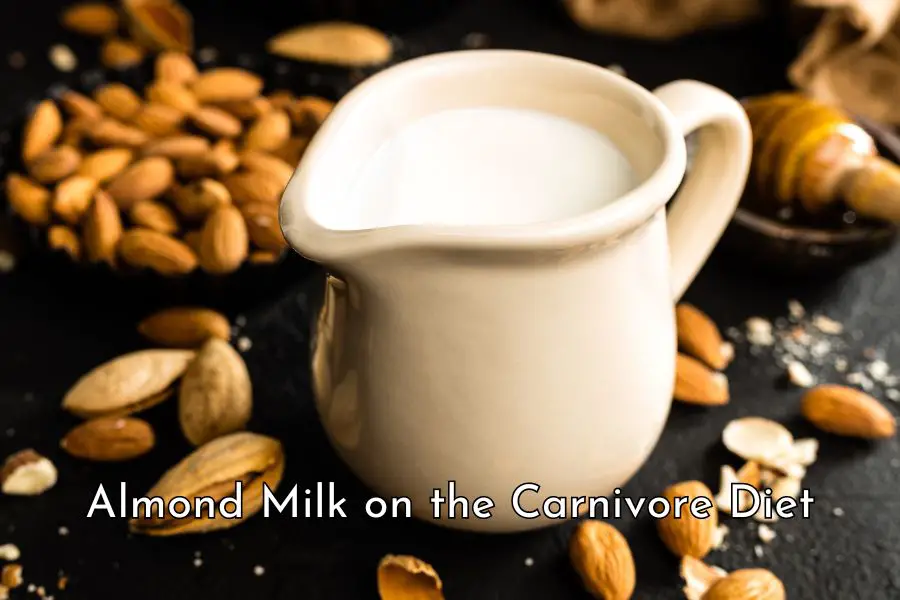Collagen, the most abundant protein in the human body, constitutes a significant portion of various tissues, including skin, bones, muscles, tendons, ligaments, and more. A decrease in the production of collagen in the skin, leading to a loss of elasticity and firmness, is a significant contributing factor to the formation of wrinkles as we age. In this post, we will look at the best sources of collagen on the carnivore diet and how you can increase your collagen intake to improve your skin, bone, joint and overall health and maintain an youthful look.
What Is Collagen?
Collagen is a structural protein that is a crucial component of the connective tissues found throughout the human body. It is the most abundant protein in our body, making up a significant portion of skin, bones, muscles, tendons, ligaments, and other tissues. [1, 2]
Collagen acts like a glue that holds everything together, forming a supportive framework for cells and tissues, helping them maintain their structure and function. Collagen also provides strength and elasticity to various structures in the body and plays a vital role in maintaining the integrity of skin, hair, nails, and joints. [3, 4]
If you want glowing skin, voluminous hair, shiny nails, and healthy joints, you’ll need plenty of collagen, whether produced endogenously or obtained from dietary sources or supplements.
There are 29 types of collagen that have been identified by science, each with specific functions and distribution in the body. The most common types include Type I, which is found in skin, tendons, and bones; Type II, which is present in cartilage; and Type III, which is found in reticular fibers and commonly in the walls of blood vessels. [5, 6]
As you get older, your body’s ability to produce collagen is declined rapidly by about 1.0%-1.5% per year and by the time you are in your 80s, your collagen production would have decreased by about 75% compared to when you are in your 20s. [7, 8]
Therefore, a diet rich in collagen, good quality proteins, and essential nutrients becomes even more important as time goes by.
Due to its importance in maintaining the health and structure of various body parts, collagen has become a popular ingredient in skincare products, supplements, and treatments aimed at promoting skin elasticity, joint health, and overall well-being. [9, 10, 11, 12]
However, we believe the best source of collagen is still real collagen-rich food which is an affordable and delicious way to improve your health, make you feel better and look younger. Consuming those foods not only provide you with highly bioavailable collagen but also other essential nutrients that are critical for collagen production in your body.
Health Benefits of Collagen
Collagen plays vital roles in various bodily functions, and its consumption has been associated with several health benefits, including: [13, 14, 15, 16, 17, 18, 19, 20, 21, 22, 23, 24, 25, 26, 27, 28, 29, 30]
- Skin Health: Collagen is a major component of the skin, providing elasticity and strength. Consuming collagen-rich foods or supplementing with collagen may contribute to reduced wrinkles, improved skin hydration, and increased skin firmness.
- Joint Support: Collagen is a key component of cartilage, the tissue that cushions joints. Collagen supplementation has been linked to improved joint flexibility and reduced symptoms of joint pain and osteoarthritis.
- Hair and Nail Strength: Collagen is essential for maintaining the health of hair and nails. Getting sufficient collagen from either diet or supplements may promote stronger, healthier hair and nails.
- Gut Health: Collagen helps maintain the integrity of the digestive tract lining. It may support gut health by preventing leaky gut syndrome and promoting the growth of beneficial bacteria in the digestive system.
- Bone Health: Collagen provides structure to bones and helps maintain bone density. Collagen supplements have been found to contribute to bone health, especially for individuals at risk of bone loss or osteoporosis.
- Muscle Mass: Collagen is found in muscles, and consuming sufficient collagen may help preserve and promote lean muscle mass, particularly in aging populations.
- Wound Healing: Collagen is involved in the formation of new tissues, making it essential for wound healing. Collagen supplements have been found to aid in the recovery process after injuries or surgeries.
- Heart Health: Some studies suggest that collagen may have potential benefits for heart health by promoting arterial elasticity and reducing the risk of atherosclerosis.
- Weight Management: Collagen protein is satiating, and including it in the diet may contribute to feelings of fullness, potentially aiding in weight management.
- Anti-Aging Properties: Collagen’s role in promoting skin elasticity and hydration, along with its antioxidant properties, may contribute to its anti-aging effects.
Carnivore Diet and Collagen Production
In our opinion, the carnivore diet is the best diet that supports collagen production because, in addition to proving many foods that are rich in collagen, it also provides an abundance of necessary nutrients for collagen production.
Because collagen is protein molecules made up of amino acids, to boost collagen production, you will need to provide your body with good quality proteins and foods on the carnivore diet are the best source of quality proteins to help boost collagen production. They are both rich in highly bioavailable quality proteins and other beneficial nutrients and free from anti-nutrients.
In addition, if you practice eating nose to tail on the carnivore diet and include collagen-rich food such as bone broth, beef tendon, oxtail, pig trotters, pork rind, and chicken skin in your diet, these foods can help boost collagen production in your body.
Plant-based foods, on the other hand, do not contain collagen. Although they can provide the necessary nutrients for collagen production (e.g. vitamin C, minerals and amino acids), plant-based foods come with anti-nutrients that can be harmful to human health if consumed in excess. [31, 32, 33]
Best Sources of Collagen on the Carnivore Diet
As mentioned above, animal-based foods are the best source of collagen because they provide readily available compounds for the collagen production in the human body. Below are some of the richest animal-based sources of collagen.
Bone Broth
Comprising about 90% of the organic bone matrix, collagen makes bone broth an excellent source of this essential protein. Created by simmering animal bones and connective tissues, this process breaks down collagen into gelatin. When consumed, gelatin offers essential amino acids and proteins that support the body’s natural collagen production. [34]
If you simmer the bones for 24 hours or more, the broth will be rich in many nutrients including gelatin and minerals. The bones will also become soft and edible and they can be a great source of collagen as well as calcium, phosphorous, and magnesium. [35]

Beef Tendon
Beef tendon, the connective tissue that connects bones and muscles in cows, is mostly made up of collagen (80-90%). It is very tough and requires hours of cooking to become chewable. Although high in protein and low in fat, beef tendon has a fatty and gelatinous texture and a mild flavor. [36, 37]
As mentioned above, while your body is good at producing sufficient collagen to replenish broken-down collagen when you are young, as you age, its ability to produce collagen begins to decline. Therefore, as you get older, it’s important to make sure that you regularly eat collagen-rich food and beef tendon can be an excellent way to add more collagen to your diet due to its extremely high collagen content.
Chicken Skin
Chicken skin contains around 35% connective tissues, most of which is collagen. Chicken skin is a good source of collagen, offering essential amino acids like glycine and proline that play a crucial role in collagen synthesis within the body. Incorporating chicken skin into your diet can provide these beneficial components. Whether fried to create a flavorful snack or added to soups and stews to turn them into collagen-rich dishes, chicken skin offers a versatile and delicious way to boost your collagen intake. [38, 39]
Pig Skin
Pig skin is another great source of collagen. Collagen is abundant in the dermal layer of pig skin and consuming pig skin can provide essential amino acids like glycine and proline to support your body’s collagen synthesis. Furthermore, pig skin is very similar to the human skin in terms of general structure, thickness, hair follicle content, pigmentation, collagen and lipid composition, therefore, it can be a valuable source of collagen for humans. [40]
Whether incorporated into stews, roasted to crispiness, or utilized in other dishes, pig skin provides a tasty and collagen-rich option for those seeking diverse sources of this essential protein.
Pig Feet
Pig trotters, or pig’s feet, are an excellent source of collagen. Collagen is abundant in the tendons, ligaments, and skin found in pig trotters. When slow-cooked or braised, the collagen in pig trotters breaks down into gelatin, providing a rich and flavorful base for soups, stews, and broths. Consuming pig trotters can contribute to supporting the body’s natural collagen production, promoting joint health, and enhancing skin elasticity. [41]
Bone-In Fish
Fish bones, scales, and skin are all great sources of collagen. Consuming whole fish with bones, such as canned salmon or sardines, can help increase your collagen intake as well as the anti-inflammatory omega-3 fatty acids. [42, 43, 44]
Bone Marrow
Bone marrow is not actually a significant source of collagen itself. However, bone marrow does contain other valuable nutrients, including healthy fats, vitamins (such as vitamin A, vitamin K2, and some B-vitamins), and minerals like iron, zinc, calcium and selenium. These essential nutrients can be extremely beneficial in supporting your body’s collagen production. [45]
Connective Tissues
Consuming cuts of meat that include connective tissues can help increase your collagen intake. Meat recipes often call for the removal of all connective tissues. However, you can save those collagen-rich offcuts and add them to slow-cooking or stew dishes which can help break down collagen for easier absorption.
Should You Take Collagen Supplements?
While obtaining collagen from quality natural food sources mentioned above ensures a broader spectrum of nutrients and benefits for overall health, collagen supplements can be a great alternative if you don’t particularly enjoy eating those collagen-rich foods and still want to reap their health benefits.
Research has shown that collagen supplementation benefits skin health, particularly in supporting wound healing and reducing wrinkle formation. It also contributes to increased skin elasticity, hydration, collagen content, density, and synthesis—factors closely associated with aging-related skin damage. [46, 47, 48, 49, 50]
Collagen supplementation also enhances bone strength, density, and mass, improves joint mobility and functionality, and reduces pain, contributing to an overall improvement in structural integrity. [51]
Some research also found benefits in terms of gut health, as collagen may help support the protective lining of the digestive tract. [52, 53]
In summary, if you don’t regularly eat collagen-rich foods and foods that stimulate collagen production, incorporating collagen supplements into your routine can thus be a convenient way to address various aspects of skin, joint, and overall health. However, make sure you get quality collagen supplements from reputable sources. Look for those that are sourced from grass-fed or pasture-raised animals and free from additives, fillers and allergens.
Other posts you might be interested in:
10 Easy Carnivore Breakfast Ideas
Can the Carnivore Diet Help Fix Your Eczema?
Do You Need Electrolyte Supplement on a Carnivore Diet?
9 Effective Strategies to Overcome Weight Loss Plateau
Why the Carnivore Diet Can Improve Your Eye Health
Can the Carnivore Diet Treat Autoimmune Diseases?
What Is the Best Meat to Eat on the Carnivore Diet?
Disclaimer: The information in this post is for reference purposes only and is not intended to constitute or replace professional medical advice. Please consult a qualified medical professional before making any changes to your diet or lifestyle. Please check out our disclaimer for more detail.





